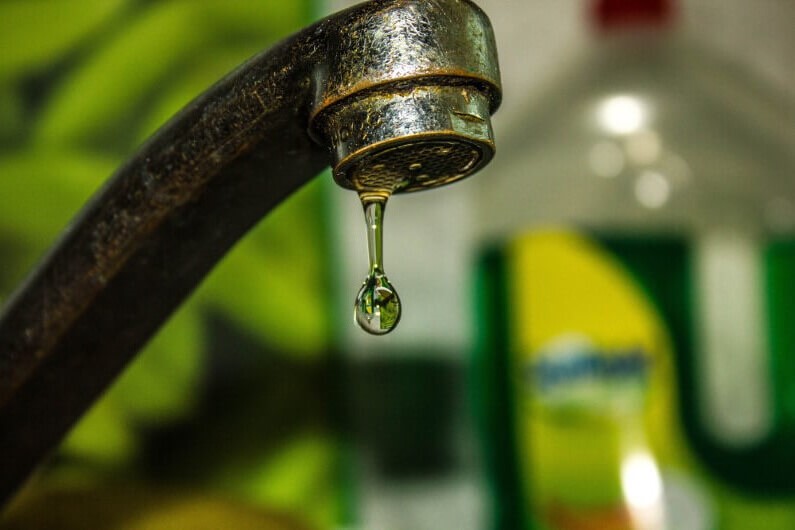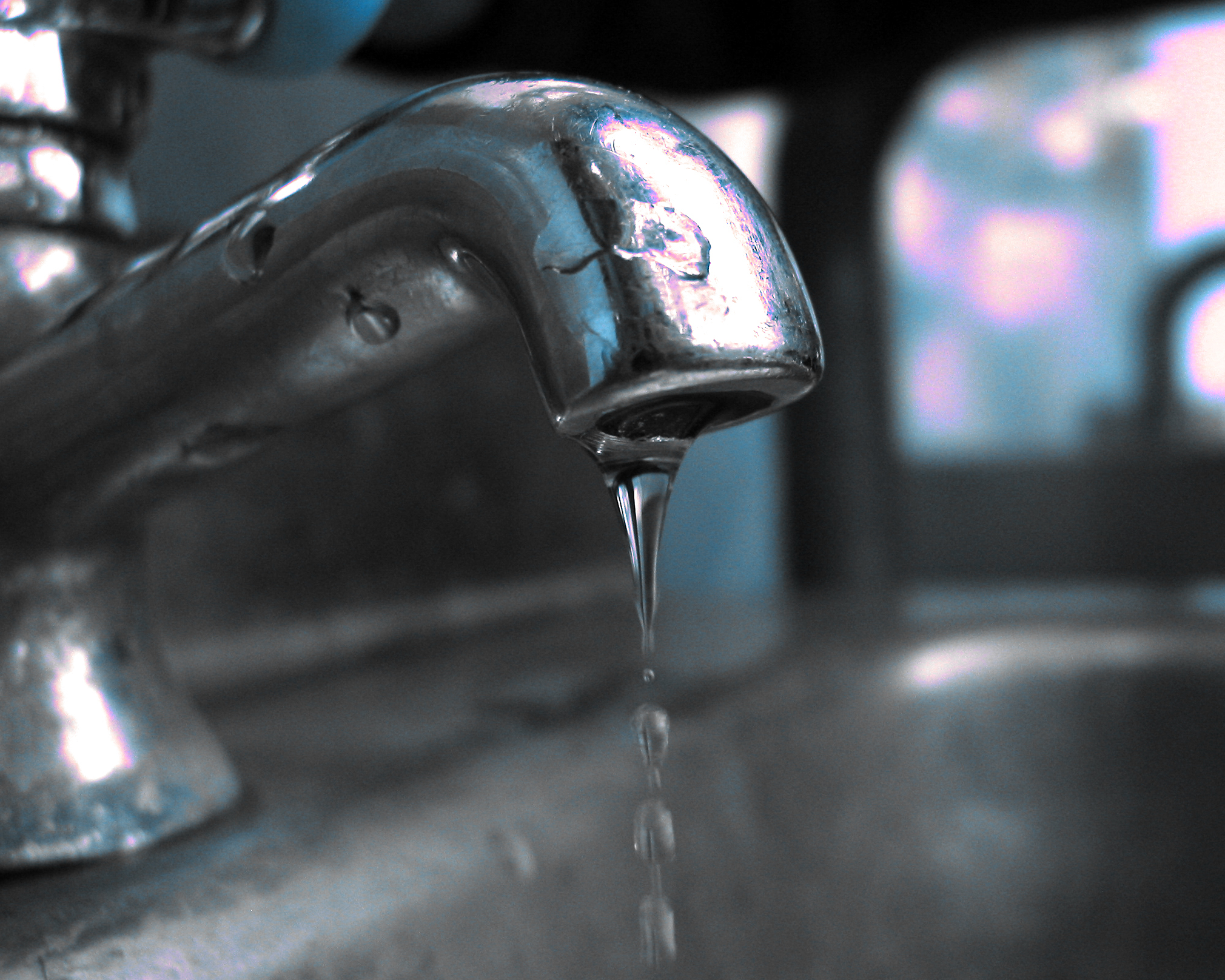When It's Critical to Mend a Leaking Faucet
When It's Critical to Mend a Leaking Faucet
Blog Article
Are you currently in search of guidance concerning Why It's Important to Fix Leaky Faucets?

Dripping taps could feel like a small aggravation, however their effect exceeds just the annoyance of the sound. From drainage to incurring unnecessary economic prices and health and wellness dangers, disregarding a dripping tap can cause different consequences. In this article, we'll look into why it's critical to address this common house problem quickly and efficiently.
Wastage of Water
Ecological Impact
Dripping taps contribute significantly to water wastefulness. According to the Environmental Protection Agency (EPA), a solitary faucet leaking at one drip per second can squander more than 3,000 gallons of water each year. This not only stress water sources but also affects ecological communities and wild animals based on them.
Step-by-Step Guide to Repairing a Dripping Faucet
Tools Required
Prior to attempting to fix a trickling faucet, collect the required devices, consisting of an adjustable wrench, screwdrivers, substitute parts (such as washing machines or cartridges), and plumber's tape.
Common Tap Issues and Their Solutions
Recognize the type of tap and the specific concern causing the drip. Usual problems consist of damaged washers, rusty valve seats, or malfunctioning O-rings. Refer to manufacturer directions or online tutorials for step-by-step advice on repair work.
Financial Prices
Increased Water Expenses
Past the environmental effect, trickling faucets can pump up water expenses significantly. The accumulated wastage with time translates right into higher energy expenditures, which could have been avoided with prompt repair services.
Prospective Residential Property Damage
Furthermore, long term trickling can lead to damage to fixtures and surface areas bordering the tap. Water buildup can create discoloration, corrosion, and even structural issues if left unattended, leading to extra repair service prices.
Health Issues
Mold and Mildew Development
The continuous existence of wetness from a trickling faucet produces a suitable setting for mold and mildew and mold development. These fungis not just jeopardize interior air high quality however likewise position wellness threats, particularly for people with respiratory problems or allergic reactions.
Waterborne Conditions
Stationary water in leaking faucets can become a breeding place for microorganisms and various other microorganisms, increasing the threat of waterborne conditions. Impurities such as Legionella germs flourish in stagnant water, potentially bring about significant health problems when ingested or inhaled.
Do it yourself vs. Specialist Repair work
Pros and Cons of DIY Fixing
While some might attempt to fix a trickling tap themselves, DIY fixings include their own collection of difficulties. Without proper understanding and tools, do it yourself attempts can exacerbate the concern or cause incomplete fixings, extending the problem.
Advantages of Hiring a Specialist Plumber
Employing a professional plumber guarantees that the underlying cause of the leaking faucet is attended to efficiently. Plumbers possess the proficiency and tools to diagnose and fix faucet concerns efficiently, conserving time and decreasing the risk of more damage.
Ecological Duty
Individual Payment to Preservation
Taking obligation for dealing with leaking taps aligns with wider initiatives towards water preservation and environmental sustainability. Every individual's activities collectively make a considerable influence on preserving valuable sources.
Sustainable Living Practices
By prioritizing timely fixings and adopting water-saving practices, individuals add to lasting living practices that benefit both present and future generations.
Safety nets
Normal Upkeep Tips
To prevent leaking faucets, do regular upkeep such as cleaning aerators, evaluating for leaks, and replacing worn-out parts immediately. In addition, consider installing water-saving gadgets or updating to a lot more reliable components.
Relevance of Prompt Repairs
Resolving trickling taps as quickly as they're noticed avoids further water wastage and potential damage, ultimately saving both water and money in the long run.
Impact on Residential Or Commercial Property Value
Assumption of Well-Maintained Building
Keeping a residential or commercial property in good condition, including addressing maintenance concerns like trickling taps, improves its perceived value and worth amongst prospective customers or lessees.
Impact on Resale Value
Residences with well-kept plumbing fixtures, consisting of taps, command higher resale values in the property market. Attending to leaking faucets can add to a positive impact throughout home evaluations and negotiations.
Verdict
Attending to a dripping tap exceeds mere ease; it's a necessary step towards conserving water, lowering monetary costs, and guarding health and wellness and residential or commercial property. Whether via DIY repairs or expert assistance, doing something about it to repair trickling faucets is a tiny yet impactful way to promote liable stewardship of resources and add to a healthier, a lot more sustainable future.
How to Fix a Leaky Faucet: Step-by-Step Repair Guide
A leaky faucet may seem like a simple annoyance, but if it's not fixed promptly, that leak could cost hundreds to potentially thousands. From water damage to mold, mildew, and high water bills, even a tiny leak can be catastrophic if left unattended. Damage like this can even affect the overall value of your home, so it's important to take the right approach for leaky faucet repair. You may need the help of a plumber in some cases, but we've got a few tips you can try on how to fix a leaky faucet before calling the pros.
Four Faucet Types
When you're learning how to fix a leaky faucet, the first step is knowing what kind of faucet you're working with! There are four common types.
Cartridge Faucets
Cartridge faucets come in one- or two-handled varieties. In one-handled cartridge faucets, hot and cold water combines in a single cartridge. In the two-handled versions, hot and cold water are controlled separately and mixed in the faucet.
Ball Faucets
Ball faucets have a single lever you push up and down to adjust the pressure and rotate to change the temperature. A slotted metal ball controls the amount of water allowed into the spout.
Compression Washer Faucets
They're the oldest type of faucet, but they're still used in many homes — especially older ones. Compression faucets have two separate handles that, when turned, raise or lower the washer that seals a water valve. This valve stops water from flowing through the faucet when it is turned off.
Disc Faucets
Disc faucets rarely need to be repaired due to their maintenance-free design. The water flow is controlled by two discs — the upper one raises and lowers against a fixed lower disc, creating a watertight seal. If your disc faucet starts leaking, you may need to replace the seals or clean residue buildup from the inlets.
Fixing a Leaky Faucet
Step 1: Turn Off the Water
Whether you're learning how to fix a leaky bathtub faucet or how to fix a leaky kitchen faucet, always turn off the water supply to your working area when you're fixing a leak. The last thing you want is a flood added to your list of things to fix.
Look for the shutoff valves below your sink or around the tub and turn them clockwise to stop the water flow. If your faucet doesn't have shutoff valves, you may need to turn off the water for the whole house. Check to make sure it's off by turning the faucet on. If nothing comes out, you're ready to start the repair.
Step 2: Take Apart the Faucet
How you disassemble your faucet depends on the type of fixture you have. You can use a flathead screwdriver to remove the caps on top of the handle or handles for cartridge and compression faucets. Inside, you should see handle screws. Unscrew these with a screwdriver to remove the handle.
Disc- and ball-style faucets will typically have an inlet screw near the handle, and removing that will reveal the interior of the faucet.
Detach the Valve Stem
For cartridge- and compression-style faucets, you'll see the inner valve stem or cartridge once you remove the faucet handles. If you have a compression faucet, unscrew the brass valve stem. If you have a cartridge faucet, pull out the cartridge. If your cartridge has been in place for a while, it may require some tools or extra force to remove it due to mineral deposits.
Examine and Replace Parts
Once you've removed the parts, check them out to confirm what needs to be replaced. You may see corroded rubber washers, O-rings, stems, or cartridges. On a ball-style faucet, check the seats and springs for damage.
If you need to repair a leaky disc faucet, check the inlet and seals on the lower disc.
Once you determine what parts must be replaced, visit your local hardware store. Bring the damaged parts with you to ensure you can purchase the correct components to replace them.
Clean Valves and Faucet Cavity
If you've removed a stem or cartridge, you may notice mineral buildup in the faucet's threads. Use white vinegar to clean the valve seat by soaking it for a few minutes, then scrub it away with a soft toothbrush and rinse with warm water. You can also clean the interior of the faucet in the same way.
Reassemble the Faucet
Once your faucet is cleaned and the required parts have been replaced, it's time to reassemble it. Put the pieces back together and slowly turn the water supply back on. Doing this slowly is crucial because too much initial water pressure can damage the new hardware you've just installed.
https://homewarranty.firstam.com/blog/how-to-fix-leaky-faucet

Do you enjoy reading up on Should I Repair or Replace a Leaky Faucet?? Post feedback directly below. We will be delighted to know your opinion about this review. We are looking forward that you come back again soon. Are you aware of somebody else who is excited about the subject? Take a moment to promote it. We recognize the value of your readership.
Report this page